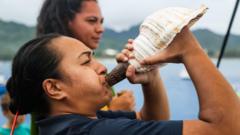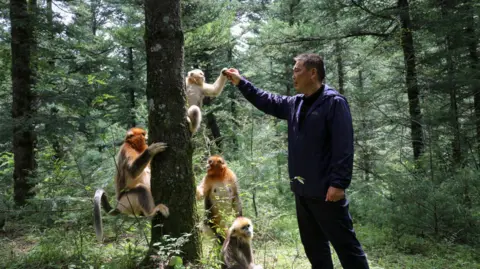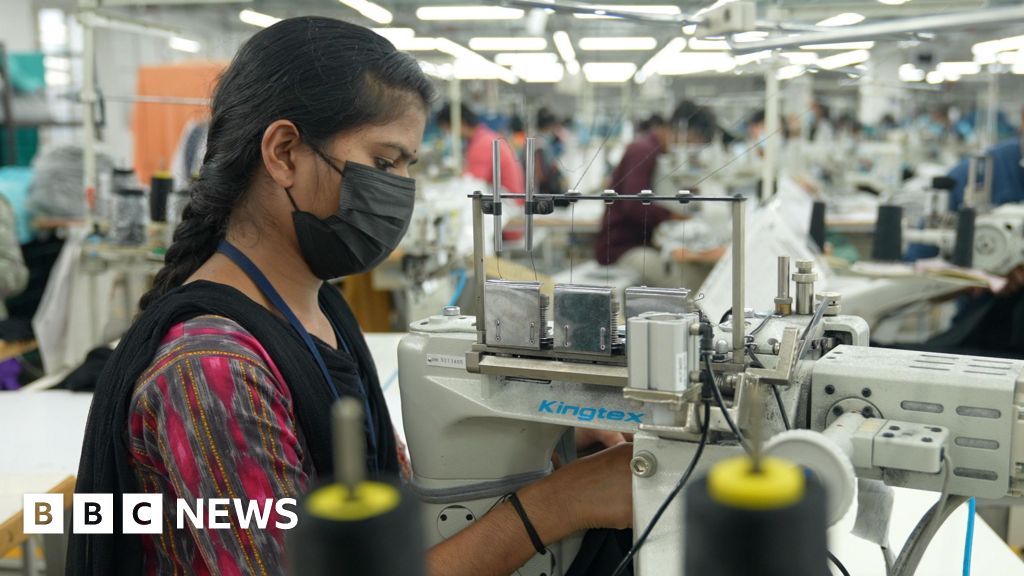The Cook Islands, grappling with the dual challenges of climate change vulnerability and economic survival, are embarking on an ambitious project to explore the seabed for polymetallic nodules. These nodules, rich in cobalt, nickel, and manganese—essential for renewable technologies like electric vehicles—hold immense potential for economic growth. However, the initiative is facing mounting scrutiny from environmental activists who fear irreversible damage to marine ecosystems.
Prime Minister Mark Brown advocates strongly for this venture, believing it will usher in a new era of prosperity for the island nation of just over 15 islands. "The income from these metals could transform our economy," he insists. Yet, the excitement is tempered by concerns about the ecological impact of mining at depths reaching nearly 6,000 meters.
Critics, including local environmental organizations, argue that we know too little about the potential repercussions of deep-sea mining on marine biodiversity. “We are asking for more time for robust independent research,” says activist Alanah Matamaru Smith, expressing the need for awareness among residents about the potential risks. Allegations of inadequate community engagement further complicate matters, as many local voices remain unheard in the larger conversation.
Jean Mason, a local librarian, sees the nodules as the solution to economic hardship and argues against further delays. Citing discussions that date back over 50 years, she feels now is the time to act. Contrarily, many others in the community exhibit caution, wary of the environmental degradation that could follow.
With licensed companies beginning exploratory work, a larger conflict emerges between the desire for economic development and the imperative to protect the ocean. Rima Brown, of the Seabed Minerals Authority, defends the mining initiative, stating that to thrive, the islands must utilize their resources wisely. "We are known as small-island developing states, but we prefer to call ourselves large ocean states," she quips.
As confirmations of infrastructure development for mining operations come to light, locals like June Hosking echo unease, emphasizing the need for genuine community dialogue. The tempting prospect of a wealth-generating industry persists, yet many remain vigilant about the environmental toll it may exact.
While supporters envision a prosperous future similar to Norway's, critics raise an essential question: will the short-term gains from seabed mining foster or forfeit the long-term survival of the Cook Islands? The ongoing debate continues to unfurl like the waves of the ocean the islands depend upon—a complex interplay of hope, risk, and resilience in the face of change.
Prime Minister Mark Brown advocates strongly for this venture, believing it will usher in a new era of prosperity for the island nation of just over 15 islands. "The income from these metals could transform our economy," he insists. Yet, the excitement is tempered by concerns about the ecological impact of mining at depths reaching nearly 6,000 meters.
Critics, including local environmental organizations, argue that we know too little about the potential repercussions of deep-sea mining on marine biodiversity. “We are asking for more time for robust independent research,” says activist Alanah Matamaru Smith, expressing the need for awareness among residents about the potential risks. Allegations of inadequate community engagement further complicate matters, as many local voices remain unheard in the larger conversation.
Jean Mason, a local librarian, sees the nodules as the solution to economic hardship and argues against further delays. Citing discussions that date back over 50 years, she feels now is the time to act. Contrarily, many others in the community exhibit caution, wary of the environmental degradation that could follow.
With licensed companies beginning exploratory work, a larger conflict emerges between the desire for economic development and the imperative to protect the ocean. Rima Brown, of the Seabed Minerals Authority, defends the mining initiative, stating that to thrive, the islands must utilize their resources wisely. "We are known as small-island developing states, but we prefer to call ourselves large ocean states," she quips.
As confirmations of infrastructure development for mining operations come to light, locals like June Hosking echo unease, emphasizing the need for genuine community dialogue. The tempting prospect of a wealth-generating industry persists, yet many remain vigilant about the environmental toll it may exact.
While supporters envision a prosperous future similar to Norway's, critics raise an essential question: will the short-term gains from seabed mining foster or forfeit the long-term survival of the Cook Islands? The ongoing debate continues to unfurl like the waves of the ocean the islands depend upon—a complex interplay of hope, risk, and resilience in the face of change.






















